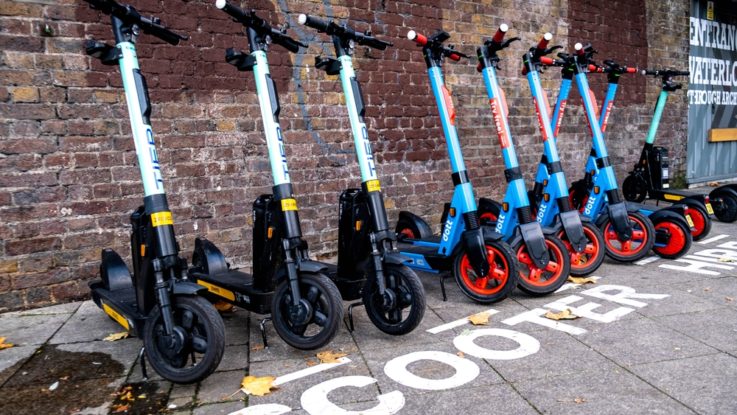
The three rental e-scooter firms that operate in London, England – Tier, Dott, and Lime – are working with Anderson Acoustics to trial the use of a universal warning sound to alert pedestrians and other road users of their approach. The research is being conducted after extended experiments at University College London’s (UCL) specialist Person-Environment-Activity Research Laboratory (Pearl). Anderson Acoustics has previously worked with Transport for London (TfL) on the development of acoustic warning sounds for urban buses.
The on-street testing is the first time any of the acoustic alerts have been heard in public. The tests are designed to assess how pedestrians react to the different sounds being tested. The aim of the project is to improve safety across the e-scooter industry, helping road users – especially partially sighted and blind people – to identify when a shared e-scooter is being ridden in their vicinity, regardless of its operator or make.
“Collaborating with UCL Pearl, we’ve worked together to test hundreds of different sounds to see how well they help pedestrians hear, locate and understand the behavior of e-scooters in a fraction of a second,” Grant Waters, principal consultant at Anderson Acoustics, said. “We’ve now brought these innovative experiments into real-world streets, both in busy and quiet locations, to test how people with vision impairment find the shortlisted sounds in context and to understand their acceptability and sound quality.”
Volunteers from the Sight Loss Councils – which are led by blind and partially sighted (BPS) volunteers who work with businesses and services to ensure what they do is accessible and inclusive – are collaborating on the project.
The findings of the pilot project will be analyzed ahead of a broader pilot of the universal sound to be held around England later this year.